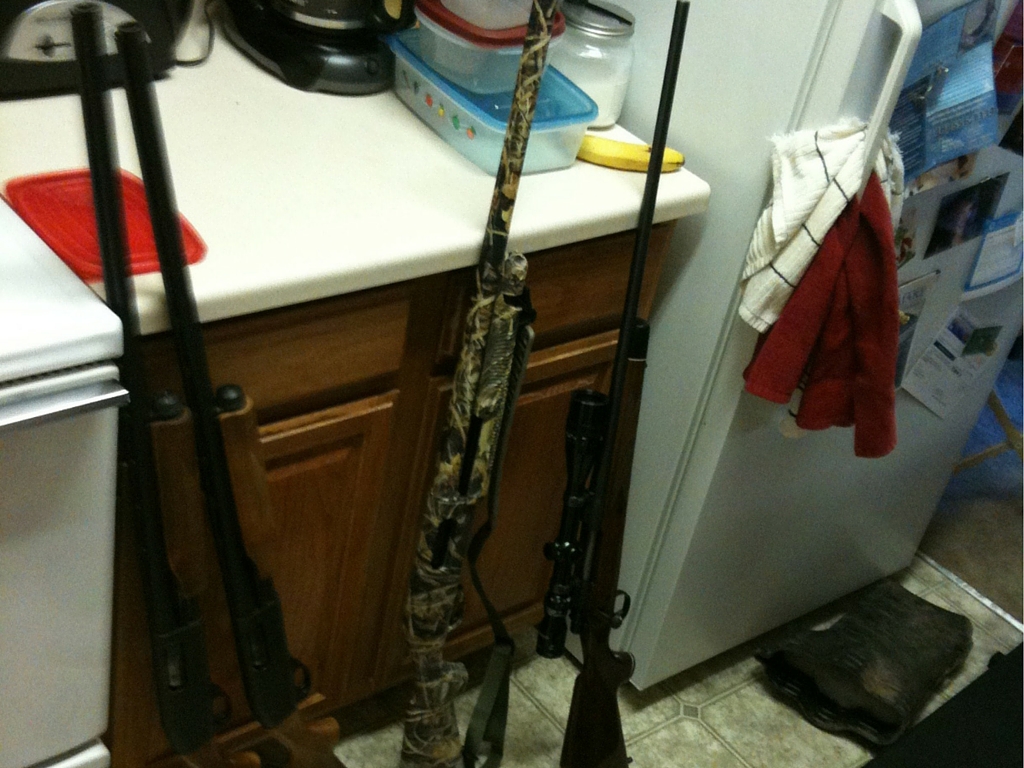>> There was an article that appeared in The Washington Post recently with the leading title: >>“The Question I Ask Before Any Playdate.”
There was an article that appeared in The Washington Post recently with the leading title: >>“The Question I Ask Before Any Playdate.”
The question: Do you keep guns in the house?
I thought to myself, “T hat’s a good question . Maybe I should start asking about guns before I send my child to someone else’s house.”
Basking in the light of my new self-awareness, I envisioned how this might play out in reality.
I sit with another like-minded mommy at a park on a sunny day, watching our angelic children play together in harmony. My child would come rushing over, so excited she can’t stop bouncing.
“Guess what! Riley said I can come to her house!”
I glance at Riley’s mother, a casual acquaintance whom I’ve met a couple of times at birthday parties, and we both smile.
“We’ll have to check with Riley’s Mommy,” I say. My child runs off excited, interpreting my answer as a “yes” regardless of my actual answer.
“What do you think?” I ask.
“Sure,” Riley’s Mom says easily. “What’s your schedule like next week?”
I say that we are flexible, and then launch into my newly acquired QUESTION.
“Do you happen,” I ask sheepishly, “to keep firearms in the house?” (Because firearm sounds less accusatory than gun in my version of the story.)
“Of course not!” she answers confidently.
I let out a big sigh of relief. We both laugh at our nervousness about this question, but there is really no need, because OF COURSE we do not have guns in our house. I don’t even know anyone who owns a gun.
In reality, this conversation went down A LOT differently.
As it turns out, quite a few of my mom friends on the playground own firearms. This is not to say that they are “packing heat” on the playground (although someone might be, given North Carolina’s rather >>permissive concealed handgun laws ), but they do have guns in their homes.
According to a >>Pew Research Center survey , this is not unusual, since roughly a third of US households with children under the age of 18 have at least one gun in the house.
My gun question was getting more complicated by the minute.
My local mom’s Facebook group took up the dialogue about asking whether a friend has guns in their house, and the national statistic held up: instead of uneasy incredulity about even bothering to ask about guns in the home, at least a third of the moms were talking about how they store their weapons and ammunition.
Instead of freaking out—and let’s face it, I did a little freaking out first—I decided to get educated so that I would be able to ask the right question if, as I was likely to, I received an affirmative answer to my question about guns in the home.
But first, I need to be clear on some facts about gun violence in America and North Carolina:
- The >>gun murder rate in America is 20 times higher than in other developed countries.
- That means an average of >>12,000 gun murders per year, although the rate of shootings per year continues to increase.
- Acts of >>domestic violence represent a significant percentage of gun violence, with 54% of women murdered in 2011 being killed by an intimate partner or family member. This statistic jumps to >>above 60% in North Carolina.
- In North Carolina, 1 in 3 gun owners with young children reported keeping their firearms loaded; 1 in 2 failed to lock up their weapons safely, according to a >>UNC hospital study .
- North Carolina Gun Law received an “F” from the >>Law Center to Prevent Gun Violence , with a high murder rate and >>loophole-friendly laws .
So now that we have that straight, let’s get to the main questions to ask before going on a playdate:
- If you have guns, where are they stored?
- Are they unloaded?
- Are they locked up?
- Is the ammunition stored in a separate place?
A hidden gun is not enough. It must be locked up safely.
Another suggestion I found was that, if I did not feel comfortable about sending my child to the house, then either cancel the playdate or suggest an alternate location… one with a sign that does not permit concealed weapons.
The most important thing to do is to talk with my own child about the dangers of guns and establish a protocol for what she should do if she sees a gun in a home, out in public, and at school.
There are no comments
Add yours